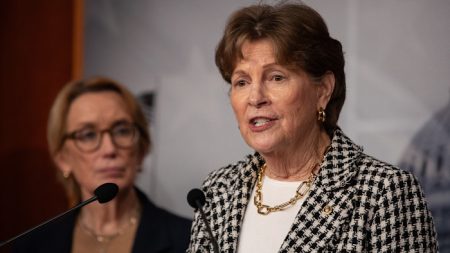Unlock the Editor’s Digest for free
Roula Khalaf, Editor of the FT, selects her favourite stories in this weekly newsletter.
The European Central Bank has been accused by members of its own staff of behaving in an “anti-democratic” way, in the latest escalation of tensions between the Eurozone’s top monetary authority and its employees.
In a letter to ECB president Christine Lagarde, seen by the Financial Times, its staff committee said the bank’s own governance failed to respect the very rule-of-law principles that she recently praised as one of Europe’s “critical comparative advantages”.
“We regret to see that these principles expressed outside the institution seem to be given little value inside the institution by its power structure,” the chair of the staff committee, Carlos Bowles, wrote to Lagarde.
The letter was sent as the ECB has so far refused to back down in a row over the Frankfurt institution’s works council, an influential group of elected employees.
The ECB has proposed forcing elected representatives to devote some of their time to their day jobs. Under German labour law, they are able to focus full time on advocating for the best interests of staff while collecting their normal salaries. However, as an extraterritorial institution, the ECB is neither subject to German labour laws nor to similar rules in other EU member states.
As such, the ECB was an “unaccountable legal fortress”, Bowles claimed in the letter.
In the four-page document, he argued that the ECB’s treatment of staff had led to “widespread complaints of favouritism, [ . . . ] high burnout rates, and the vulnerability of many colleagues working under temporary contracts”.
The row is merely the latest sign of tense labour relations at the central bank. In a survey of its employees conducted by the union Ipso earlier this year, 77 per cent of the roughly 1,400 respondents said that “knowing the right people” was key to getting ahead in the organisation, compared to just 19 per cent who believed that it does a good job of promoting “the most competent people”.
In his letter to Lagarde, Bowles argues that the ECB “is both in a situation of being an employer and a legislator,” exposing staff to a situation that threatened their freedom to “independently express their expert views”.
Bowles also accused the ECB of using its power to “undermine and even silence the only institutional counterweight within the ECB, namely the staff representation”.
The ECB said in a statement: “We are firmly committed to the rule of law and operate within a clear employment framework that is closely aligned with EU Staff Regulations and is subject to European Court of Justice scrutiny,” adding that it had won “the overwhelming majority of court cases before the European Court of Justice on the ECB employment law framework”.
The ECB has claimed its proposed changes to employee representatives’ roles, which it wants to implement by mid-2026, would be in the interests of all staff.
It says the rules would ensure staff representatives could “pursue their career path and stay closely connected to the ongoing work and public mandate” of the central bank, while advocating for staff needs at the same time.
The bosses of Europe’s services sector union EPSU and German union Verdi also wrote to Lagarde earlier this year, urging her to abandon the proposed changes.
Legal privileges and protection of works councils have been enshrined in German law for more than a century.
Read the full article here












